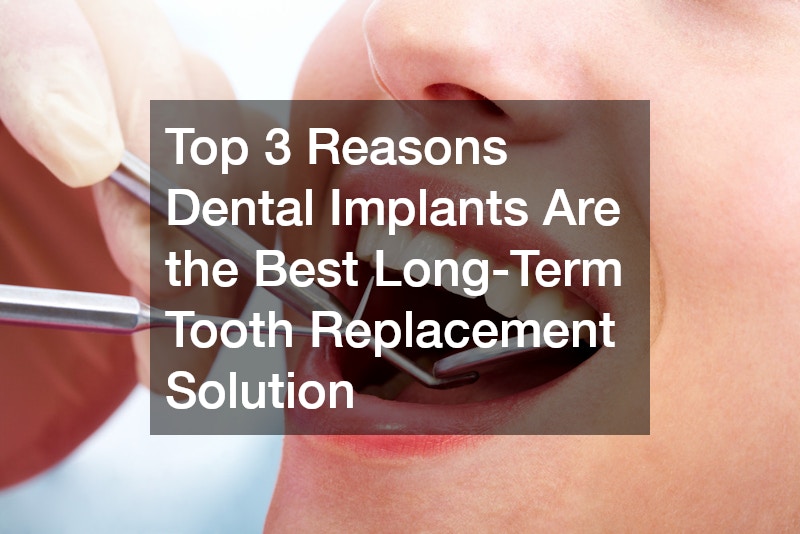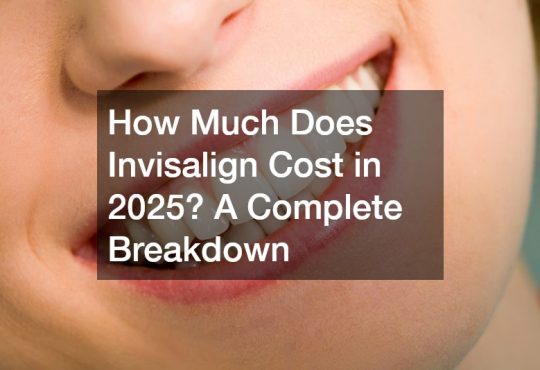
Top 3 Reasons Dental Implants Are the Best Long-Term Tooth Replacement Solution
Disclaimer: The material provided is designed to inform readers about oral health and preventive care. It should not be considered medical advice. Consult a registered dentist for guidance specific to your oral health needs.
Maintaining proper dental health is vital for overall well-being, and when tooth loss occurs, finding an effective tooth replacement solution becomes a priority. Among the various options available today, dental implants have emerged as a superior choice due to their unique benefits. Their increasing popularity is a testament to their effectiveness, durability, and long-term benefits.
Dental implants provide a foundation akin to natural teeth, making them a reliable solution for those in need of tooth replacement. This article seeks to delve into the top three reasons that position dental implants as the premier choice for long-term tooth replacement.
1. What Makes Dental Implants a Durable Tooth Replacement Option?
A. Understanding the Longevity of Dental Implants
Dental implants are renowned for their longevity, significantly outlasting other tooth replacement options such as dentures and bridges. While dentures may need adjustments or replacements every few years, implants are designed to be a permanent solution. This aspect of longevity contributes to their growing favor among dental patients seeking sustainable options.
The longevity of dental implants can be attributed to their biological integration into the jawbone. This process, known as osseointegration, provides a stable and long-lasting foundation that mimics the natural support of a tooth root, ensuring the implant remains firmly in place for decades, if not a lifetime.
Furthermore, the commitment to regular dental care and check-ups can significantly extend the lifespan of dental implants. Proper oral hygiene practices ensure that implants remain free from complications, allowing patients to enjoy their benefits for years without the frequent need for replacement that other solutions might require.
B. Material Strength and Biological Compatibility
The material strength of dental implants is a critical factor in their durability. Made primarily from titanium, a metal known for its robustness and biocompatibility, dental implants can withstand the daily wear and tear of chewing and biting. This material choice ensures that implants do not corrode or degrade over time.
Titanium’s compatibility with body tissues encourages osseointegration, where the implant fuses with the bone. This biological harmony not only promotes longevity but also enhances structural support in the mouth, unlike common alternatives which only rest above the gumline without this integral adaptation.
Additionally, innovations in implant technology have introduced surfaces and coatings that further enhance osseointegration and overall implant stability. These advancements continuously improve the success rates and lifespans of dental implants, ensuring they remain the gold standard in tooth replacement.
2. How Do Dental Implants Improve Oral Health?
A. Prevention of Bone Loss and Maintaining Jaw Structure
One of the most significant benefits of dental implants is their role in preventing bone loss. When a tooth is lost, the jawbone may begin to deteriorate without the stimulation provided by the tooth root. Implants counteract this by acting as artificial roots that continue to stimulate the jawbone, preserving its density and structure.
Maintaining jaw structure also ensures that facial aesthetics remain intact, preventing the sunken appearance often associated with tooth loss. This structural preservation is crucial not only for oral health but also for maintaining facial symmetry and confidence in one’s appearance.
This prevention of bone resorption distinguishes dental implants from dentures, which may lead to accelerated bone loss due to their lack of integration with the jaw. By maintaining bone health, implants provide long-term oral benefits that extend beyond merely replacing missing teeth.
B. Impact on Neighboring Teeth and Overall Dental Health
Dental implants have a minimal impact on surrounding teeth, in contrast to traditional bridges which may require adjacent teeth to be altered or crowned for support. Implants stand independently, reducing the risk of stress on neighboring teeth and preventing potential damage or displacement over time.
Moreover, dental implants facilitate improved oral hygiene, as they do not necessitate special cleaning tools or solutions. Patients can brush and floss as they would with natural teeth, reducing the risk of gum disease and promoting overall dental health.
In comparison to other tooth replacement options, implants enhance oral health by ensuring stability, minimizing interference, and fostering a natural approach to maintenance. This makes them an attractive option for those committed to protecting their long-term dental health.
3. Are Dental Implants More Cost-Effective in the Long Run?
A. Initial Investment vs. Long-Term Benefits
While dental implants may require a higher initial investment, their long-term benefits significantly outweigh these upfront costs. Over time, patients often find that the durability and low maintenance needs of implants lead to significant savings compared to the repeated repairs or replacements required for dentures or bridges.
The initial expense covers a lifelong solution that reduces the continual expenditure often seen with other tooth replacement options. Patients can avoid the frequent discomfort, inconvenience, and additional costs associated with non-permanent solutions due to the resilience and permanence of implants.
Additionally, the peace of mind and quality of life gained from choosing implants provides intangible long-term benefits that contribute to their cost-effectiveness. The ability to enjoy food, speak clearly, and maintain oral health without persistent worry is invaluable.
B. Reducing Recurring Dental Costs
By significantly minimizing recurring dental issues, implants help reduce long-term dental costs. Unlike dentures that may require paste, adhesive, or realignment, implants eliminate these recurring expenses, offering financial relief over their lifespan.
Furthermore, their robust design minimizes the likelihood of issues such as gum irritation or jaw discomfort, which can often lead to additional visits to the dentist and associated costs. This reduction in follow-up care further establishes the economic advantages of opting for implants.
Ultimately, the comprehensive benefits of dental implants promote overall savings in dental healthcare, making them a financially savvy choice for individuals looking for a sustainable and effective tooth replacement solution.
Make Your Appointment Today
In summary, dental implants offer a superior tooth replacement option due to their durability, ability to improve oral health, and cost-effectiveness. Unlike short-term solutions, implants provide a long-lasting alternative that maintains dental health and facial structure, actively contributing to a better quality of life.
With their material strength, accommodating design, and minimal impact on surrounding teeth, implants support oral hygiene efforts while delivering substantial long-term savings. These benefits solidify dental implants as the leading choice for tooth replacement solutions.
If you’re considering a long-term, effective solution for tooth replacement, dental implants offer compelling advantages. Contact our dental professional today to explore your implant options and secure a healthier, more confident smile for the future.




